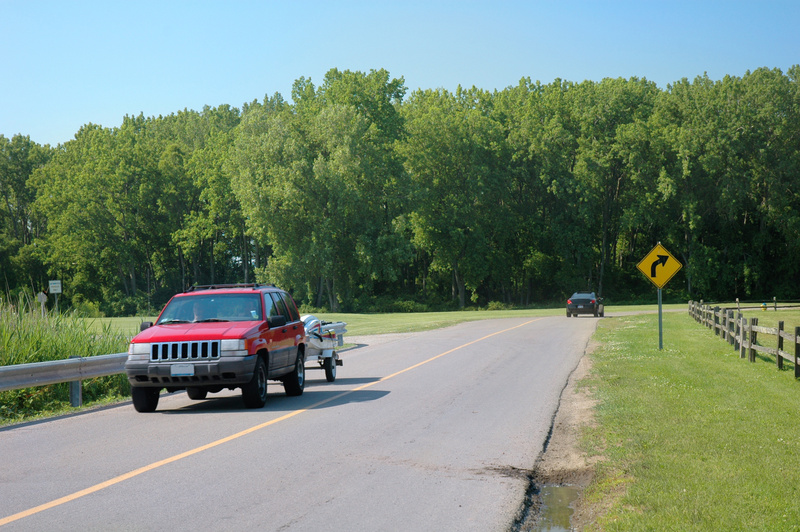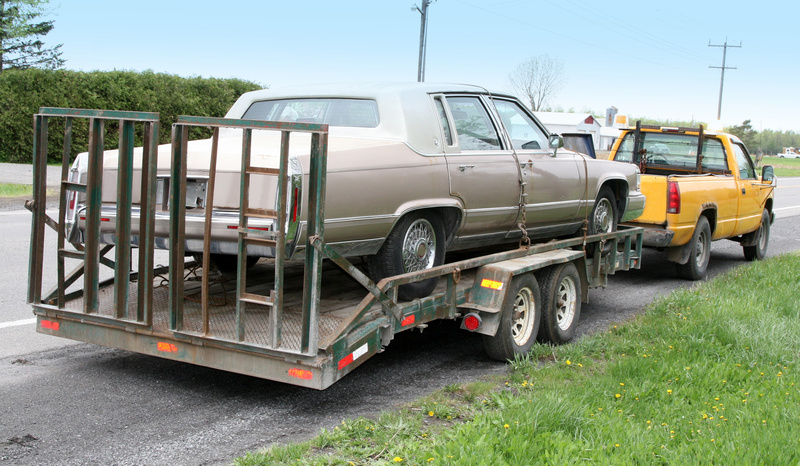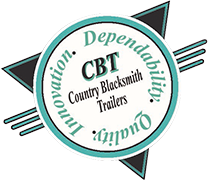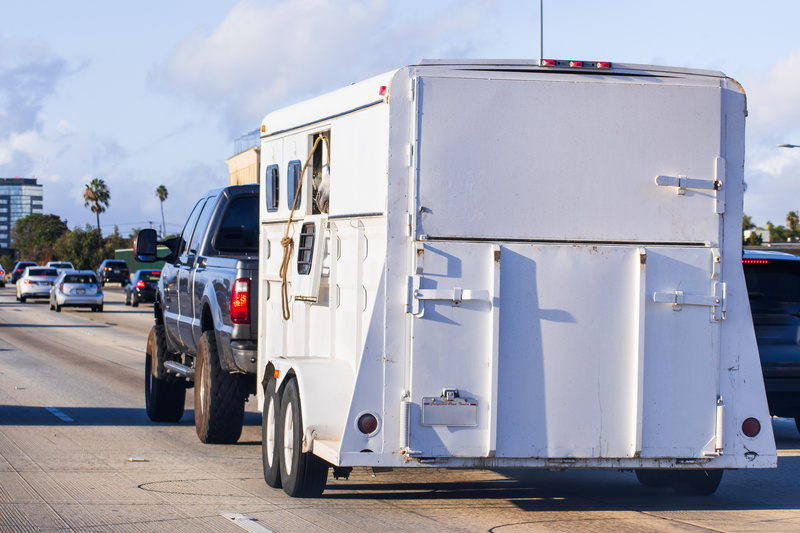Tips for Safely Towing a Trailer
Whether you’re moving homes or transporting equipment for a DIY project, towing a trailer can be a convenient way to carry extra cargo. However, with the added weight and potential for instability, safely towing a trailer should be a top priority for every driver. Neglecting proper trailer safety measures can lead to accidents, injuries, and significant damage to your vehicle and trailer.
Our team is here to emphasize the importance of trailer safety and cover essential tasks such as trailer sway prevention, proper hitching techniques, routine safety checks, and the significance of trailer brake controllers.
Trailer Sway Prevention: Safeguard Your Ride
Trailer sway, sometimes known as fishtailing, occurs when the trailer starts oscillating side to side, pulling the tow vehicle with it. This phenomenon can be extremely dangerous if not addressed promptly. To ensure you’re safely towing your trailer, consider the following tips:
Weight Distribution: Properly distribute the load within the trailer, which keeps the center of gravity low and evenly distributes weight on both sides. An imbalanced load can lead to sway, especially during sudden maneuvers or crosswinds.
Sway Control Devices: Install sway control devices such as sway bars or weight distribution hitches. These devices help stabilize the trailer by minimizing side-to-side movement, providing a safer and smoother towing experience.
Reduce Speed: It’s essential to maintain a safe and moderate speed while towing. Higher speeds can exacerbate sway, which makes it more difficult to control the trailer.

Proper Hitch Techniques: The Foundation of Safe Towing
A secure hitch connection is fundamental to towing safety. Improper hitching can lead to accidents, and may cause the trailer to disconnect from the tow vehicle. Follow these guidelines to ensure a safe and reliable hitch connection:
Match the Hitch: Choose a hitch that matches the weight rating of your trailer and vehicle. The hitch class and capacity should be adequate for the loaded weight of your trailer.
Double Check Connections: Before you hit the road, double-check all hitch connections. Ensure that the coupler is correctly attached to the ball mount, safety chains are crossed and secured, and all electrical connections (lights, brakes) are functioning correctly.
Consider a Trailer Brake Controller: a trailer brake controller is indispensable when towing heavy trailers. It synchronizes the trailer brakes with the tow vehicle’s brakes. This provides smoother and more controlled stops, which reduces wear on the vehicle’s brakes, and prevents trailer sway.
Routine Safety Checks: Prioritize Preventative Maintenance
Safely towing a trailer isn’t just about the initial setup; it’s an ongoing process that requires regular maintenance and checks. Neglecting routine safety inspections can lead to mechanical failures or hazards on the road. Here are some safety checks you should perform before each trip:
Tire Inspection: Check the tire pressure and condition of both the tow vehicle and trailer tires. Ensure they are properly inflated and free from any signs of wear, such as cracks or bulges.
Brake Inspection: Verify that the trailer’s brakes are working correctly. If your trailer has electric brakes, test the brake controller’s functionality, and adjust the gain appropriately.
Lights and Signals: Ensure that all lights and signals on the tow vehicle and the trailer are in working order. This includes taillights, brake lights, turn signals and hazard lights.
Secure the Cargo: Double-check that all cargo inside the trailer is adequately secured. Loose items can shift during transit. This affects the trailer’s stability and could cause an accident.

Trailer Brake Controllers: The Braking Safety Mechanism
One of the most critical components for safely towing a trailer is a trailer brake controller. This device works in conjunction with the tow vehicle’s braking system and the trailer’s brakes to ensure a synchronized and smooth stopping process.
Enhanced Braking Performance: A trailer brake controller allows the trailer’s brakes to engage simultaneously with the tow vehicle’s brakes. This balanced braking reduces the risk of jackknifing and trailer sway during emergency stops.
Reduced Wear on the Tow Vehicle: By distributing the braking force to the trailer, the tow vehicle’s brakes experience less strain. This can increase their longevity and reduce maintenance costs.
Improved Handling and Control: Trailer brake controllers, naturally, provide more control over braking. This allows for more stability during downhill descents and challenging road conditions.
Legal Requirement: In many regions, using a trailer brake controller is a legal requirement, especially for trailers exceeding certain weight limits. Complying with the law ensures your safety and that of others.
You can find trailer parts for sale in-store, like trailer brakes and brake controllers, at one of our Illinois trailer dealership locations. If you need assistance with trailer repair, service or maintenance, Country Blacksmith can help! Call us or contact us online to schedule a service appointment.
When it comes to safely towing a trailer, adhering to proper safety practices is non-negotiable. Understanding trailer sway prevention, hitching techniques, routine safety checks, and the role of a trailer brake controller are essential aspects of responsible trailering. Always prioritize safety over convenience and remember that a well-maintained and properly equipped trailer ensures a smoother and safer journey. By following these guidelines, you can confidently embark on your next adventure and know that you’ve taken every precaution to protect yourself, your passengers, and fellow road users from potential towing hazards.
Ready for a new trailer? Browse new and used trailers for sale in Illinois on our website! We have two convenient locations in Mount Vernon and Carterville. Our experienced team is ready to help you find the perfect trailer for the job!


